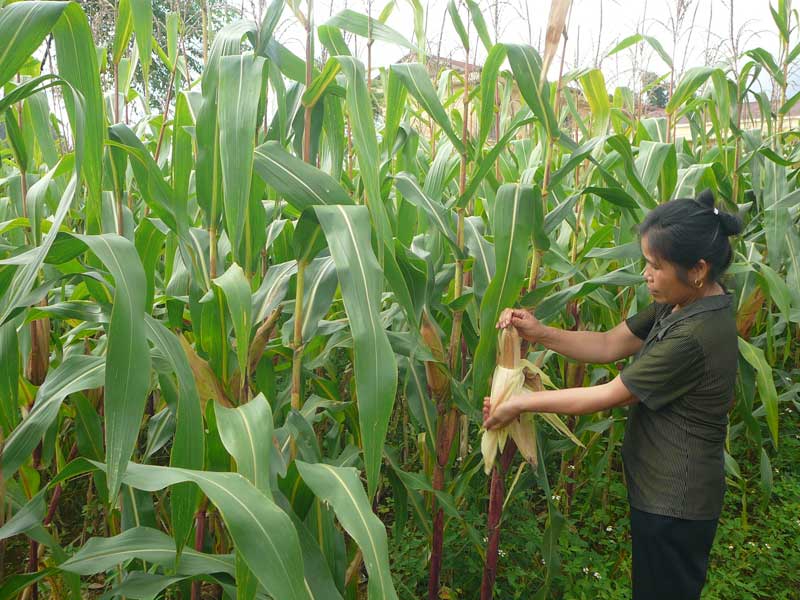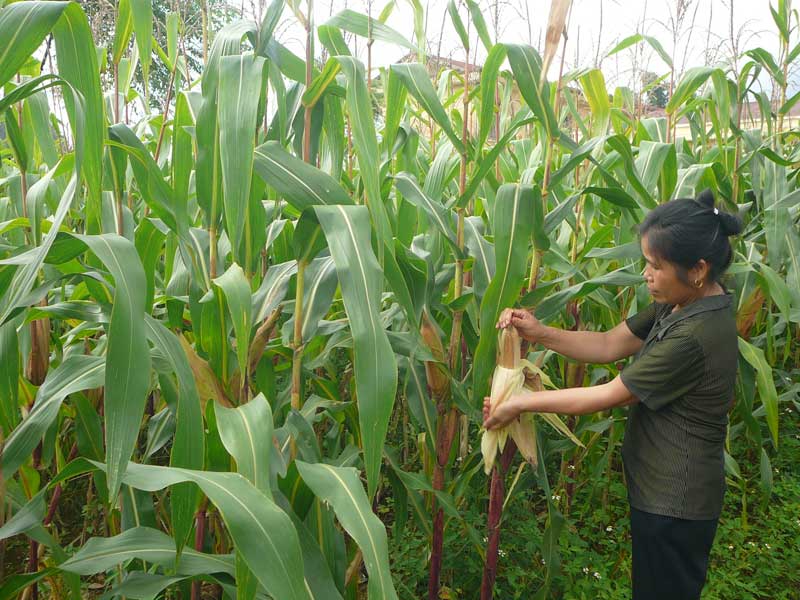
(HBO) – Programme 135 for the 2016-2020 period has reaped significant outcomes in Lac Son district, Hoa Binh province, and received warm response of local residents.
Under
the programme, investments have been poured into infrastructure in localities
that are in special difficulties, and the capital has been used for right
purposes and subjects, contributing to raising living standards of ethnic
minority groups.
 Residents
in the mountainous commune of Ngoc Son (Lac Son) have planted new varieties of
corn with higher productivity and quality
Residents
in the mountainous commune of Ngoc Son (Lac Son) have planted new varieties of
corn with higher productivity and quality
On
the basis of guidelines and instructions of the district People’s Committee,
the district steering board for national target programmes has mapped out
poverty reduction plans with concrete targets and solutions.
It
has also issued documents guiding communal People’s Committees and supervision
boards how to implement and manage relevant programmes, projects and policies.
Members
of the steering boards have been dispatched to localities to help them with the
work.
Thanks
to the programme, pressing issues regarding housing, land, health care and
education for poor and near-poor households have been settled in a timely
manner. Local poor people have accessed medical services and have higher income
and better living standards. New
infrastructure facilities have given a facelift to rural areas, facilitating locals’
travel and production.
The
rate of poor households in Lac Son dropped from 38.5 percent in 2016 to 15.15
percent in 2019, with an annual decline of 5.8 percent. The figure in communes
in special difficulties stood at 20.05 percent in early 2020, down 24.55
percent as compared with early 2016./.
The emulation movement "Hoa Binh joining hands to build new-style rural areas” has been widely spreading, becoming a driving force that motivates the localities to renew rural landscapes and improve the material and spiritual lives of the residents. In this movement, the people play a central role-both as the main implementers and direct beneficiaries of its outcomes.
In response to the global digital revolution, Hoa Binh Newspaper is transforming itself into a modern and multi-platform media hub, blending cutting-edge technology with a restructured newsroom and a new generation of tech-savvy journalists.
Hoa Binh province’s Association of the Elderly recently held a conference to review the project on expanding the inter-generation self-help club model until 2025.
In a move to implement Resolution No. 57-NQ/TW, issued on December 22, 2024 by the Politburo, which targets breakthroughs in science-technology development, innovation, and digital transformation, the Hoa Binh provincial Department of Health has issued a plan to roll out the "Digital Literacy for All” campaign within the local health sector.
An Nghia Commune (Lạc Sơn District) is one of the communes that achieved the tha standard of the national new rural area in 2018. Entering a new development phase, the commune is now trying to meet the criteria for the advanced new rural development. With the strong political will and the public consensus, the commune is gradually overcoming the challenges to reach this goal, aiming for the sustainable development.



 Residents
in the mountainous commune of Ngoc Son (Lac Son) have planted new varieties of
corn with higher productivity and quality
Residents
in the mountainous commune of Ngoc Son (Lac Son) have planted new varieties of
corn with higher productivity and quality